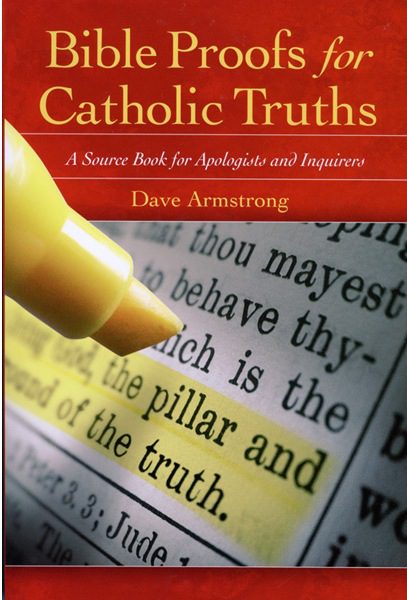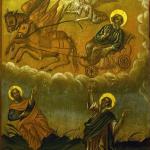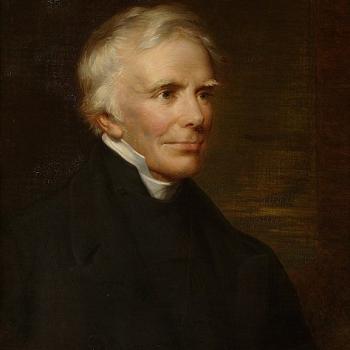
My methodology is not all that different from the Protestant approach, with regard to how biblical texts are used to support one’s position. As I keep pointing out, anyone who does systematic theology at all, does this. If you read Vatican II or papal encyclicals you’ll see Catholics citing many Scriptures in passing (in parentheses) or whole passages, that corroborate the point of view being presented. All Christians do this.
As for the principles of exegesis, again I wouldn’t differ very much from my Protestant friends; the main difference being that the Catholic must not come to doctrinal conclusions at variance with those of the Church.
But I have often argued that even that isn’t very different from, say, a Reformed pastor, who isn’t “allowed” to see Arminian interpretations in the usual TULIP proof texts. We are all “limited” by affiliation, unless we have none at all. Yet all we ever hear about, it seems, is how Catholics have to ask permission of the pope to blow their nose or decide what color socks to wear on Thursdays.
Many Protestants (not just anti-Catholics ones) hold a sort of “Pauline primacy” view. F. F. Bruce even called himself a “Paulinist”. I certainly would have thought this myself when I was a Protestant.
I can’t say that I have worked up a super-nuanced, philosophical theory of biblical exegesis. I simply argue exegesis concerning particular texts with whoever likes to do the same. I love to discuss Scripture (Luther said anyone ought to be able to do so, right?). Basically, I would accept the usual historical-grammatical method, with a few Catholic modifications.
Insofar as I have a method at all, it wouldn’t differ much at all (except in certain dogmatic respects) from something like D. A. Carson’s book, Exegetical Fallacies or Bernard Ramm’s Protestant Biblical Interpretation. Obviously, we reserve a place for authoritative tradition and the Church as well, because we think they can be infallible as well as Scripture. Since Protestants deny that, Church and tradition are only (basically) utilized by them in an “advisory capacity.”
That isn’t how the Church fathers looked at it. For them, a more or less unanimous tradition passed down, was decisive. Catholics are merely following patristic method with regard to apostolic succession. It is the so-called “Reformation” which radically departed from that.
Unless a person can back up a belief from the Bible, I don’t see that it has any authority to speak of. Why should anyone accept Calvin’s or Luther’s or Chemnitz’s or any of these people’s word just because they say so? Obviously they have to back themselves up with the Bible and (preferably) some semblance of tradition. Chemnitz and Calvin claimed to have demonstrated a substantial identity of Protestant positions with the patristic heritage. I don’t think they succeed in that, but I agree that they at least tried to do it.
Therefore, the most sensible thing to do in Catholic-Protestant discussion that accomplishes anything, is primarily to discuss Scripture and secondly, some sense of traditional Christianity . Since Scripture is regarded as infallible by Protestants, whereas tradition is not, I stick mostly to Scripture in my argumentation.
For more along these lines, see my Introduction to A Biblical Defense of Catholicism.
***
(originally 2-1-08)
[purchase information for my 2009 book, pictured at the top]
***













